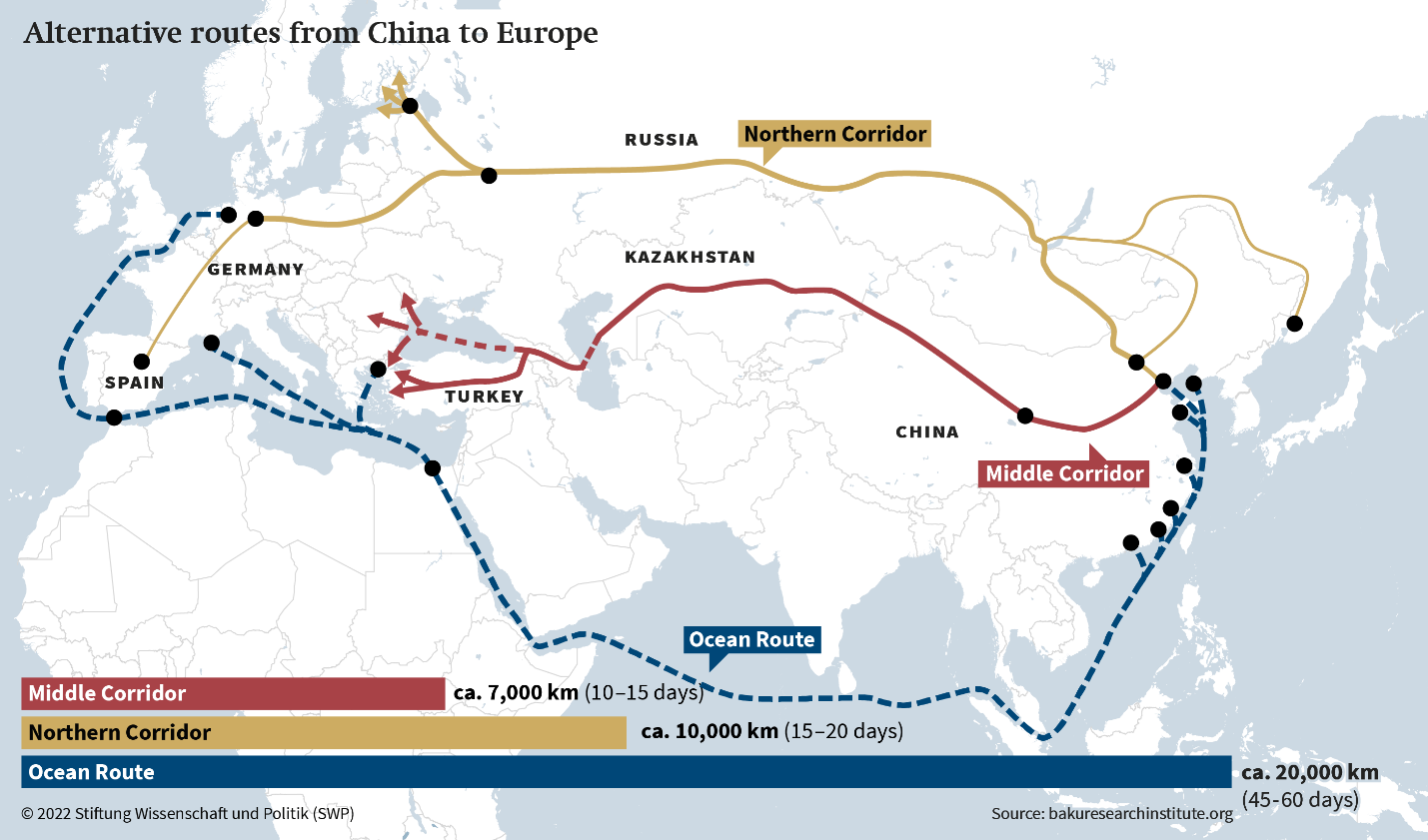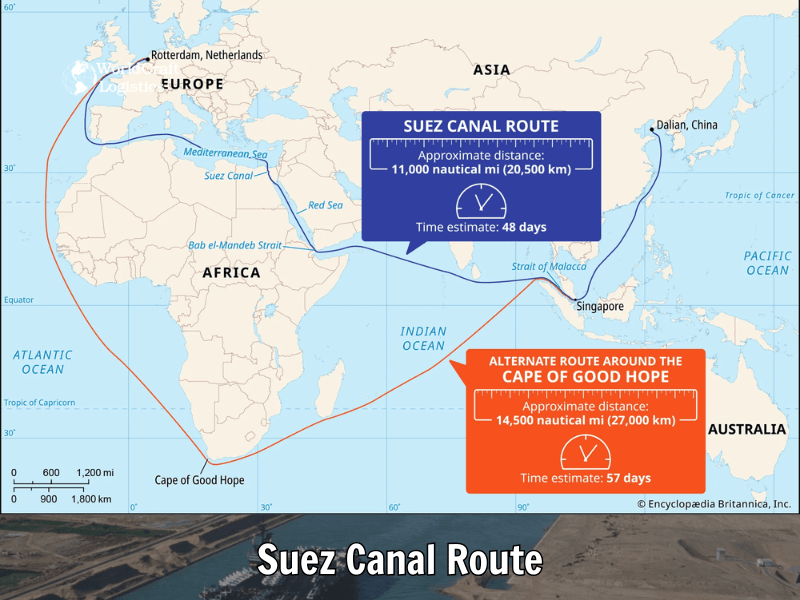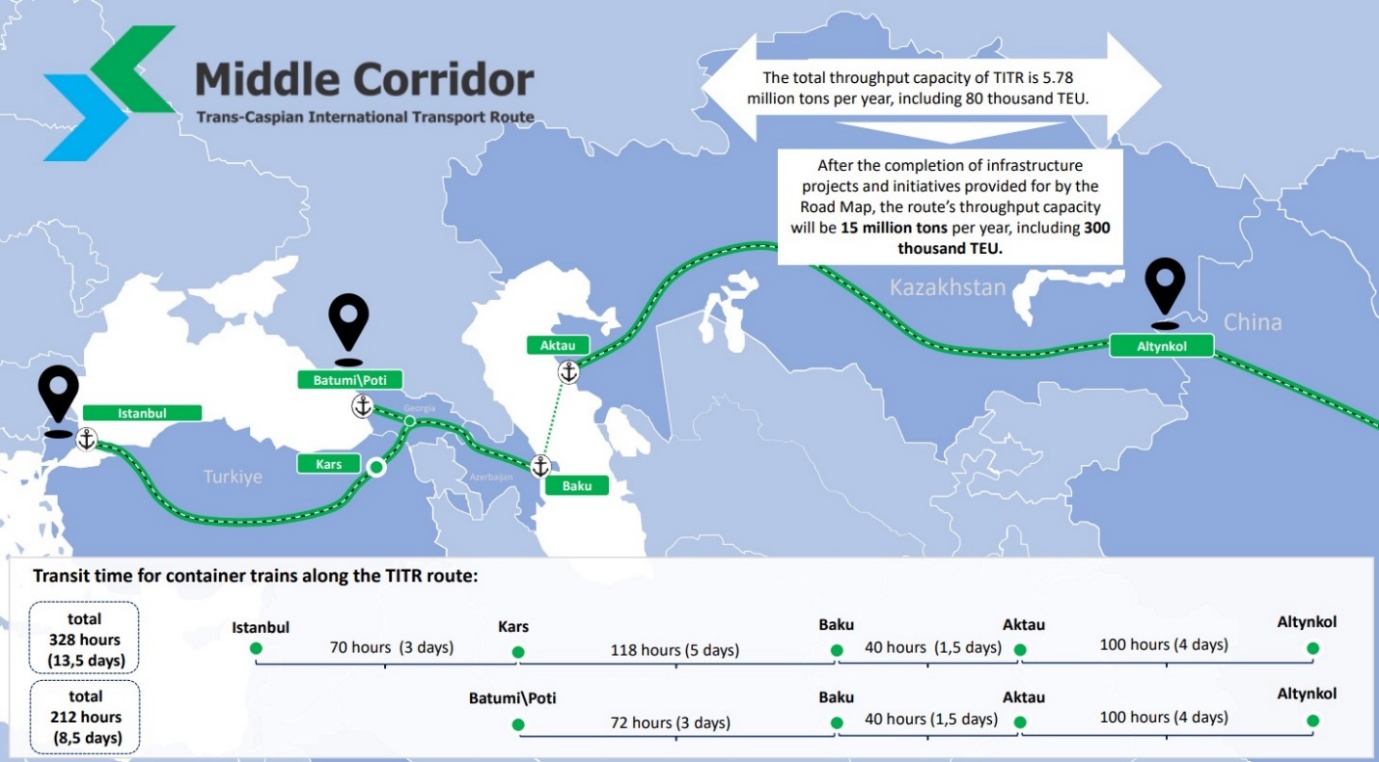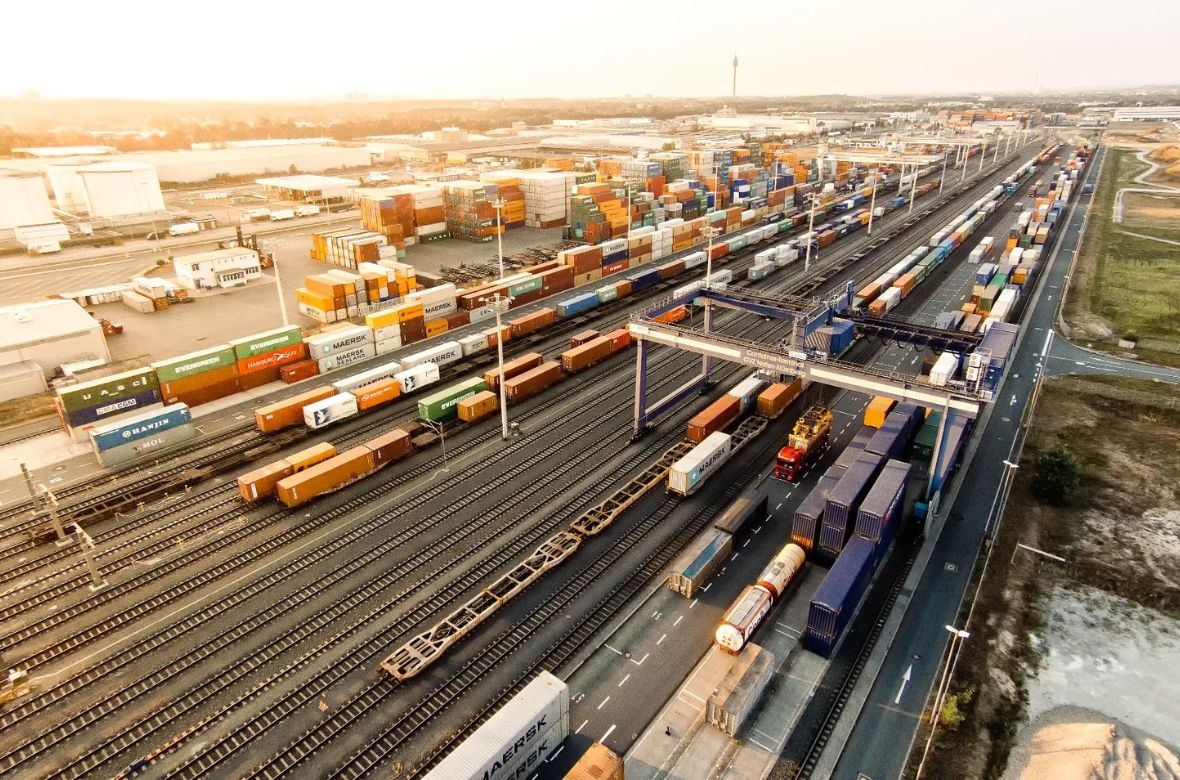BAKU, Azerbaijan, April 21. As global geopolitics continues to shift, the need for secure and reliable trade routes between Europe and Asia has never been greater. Ongoing conflicts, especially in Eastern Europe and the Middle East, have disrupted traditional transport corridors and forced countries to rethink their logistics strategies. In this changing landscape, Azerbaijan has emerged as a vital hub along the Trans-Caspian International Transport Route - also known as the Middle Corridor - offering Germany and the wider European Union a stable and strategic connection to Central Asia, the Far East, and China.

During his recent visit to Baku, German President Frank-Walter Steinmeier underscored the growing importance of this route. "I am very glad that Azerbaijan has developed into an important place," he said. "Very important trade routes pass through your country, which, in turn, can serve as a basis for the unification of the world. We have talked about our economic and trade relations. Your country plays a role in Germany's trade relations not only with Central Asia, but also with the Far East, including Southwest Asia and China. We know that the possibilities of the existing roads are limited. The roads passing through your country, as well as the role of the Middle Corridor, are important for the German economy and represent a good prospect. This will be even more interesting".
President Steinmeier’s remarks reflect a broader shift in thinking. For years, trade between Europe and Asia flowed through established routes - either overland through Russia or by sea through the Suez Canal. But the war in Ukraine has effectively cut off the Northern Corridor, and the Southern route via Iran remains unreliable due to Tehran’s strained relationship with the West. Meanwhile, attacks by the Houthi movement on commercial vessels in the Red Sea and Bab-el-Mandeb Strait have made maritime trade riskier and more costly.

In this context, the Middle Corridor has become the most promising alternative. Running from China through Central Asia and the Caspian Sea, then across Azerbaijan and Georgia to Europe, it bypasses high-risk areas while offering shorter transit times and greater stability. Azerbaijan, located at the heart of this route, is playing a key role in making it work.
The country has spent the last 30 years investing heavily in its transport infrastructure. It has modernized railways, upgraded ports, and built logistics hubs. Today, Azerbaijan operates the largest commercial fleet on the Caspian Sea, with more than 50 vessels. Its shipyards are being expanded and will soon be able to produce 10–15 tankers and cargo ships annually - double the current output.
These efforts are already showing results. In 2024, transit cargo through Azerbaijan totaled 14.5 million tons - 2.5 times more than in 2019. Of that, 4.5 million tons moved along the Middle Corridor, up 7% from the previous year. These numbers highlight both the growing demand for the route and Azerbaijan’s expanding capacity to handle it.
Moreover, the proposed Zangezur Corridor, which would connect Azerbaijan’s mainland with its Nakhchivan exclave via southern Armenia, is also closely tied to the broader vision of East-West connectivity. First outlined in the aftermath of the 2020 Karabakh war and referenced in the trilateral agreement signed by Azerbaijan, Armenia, and Russia, the corridor is planned to include both rail and road links.
If implemented, the Zangezur Corridor could significantly enhance the Middle Corridor by creating a more direct land route from Azerbaijan to Türkiye. This would help reduce transit times for cargo moving from Central Asia and China to European markets, while also decreasing reliance on northern routes that pass through Russia.
In addition to strengthening Azerbaijan-Türkiye transport links and fostering greater economic integration within the Turkic world, the corridor would provide Central Asian countries with another viable gateway to Europe. It also aligns with broader EU and regional efforts to diversify supply chains and transit options across Eurasia.

In January 2024, the European Union announced a 10 billion euro investment to enhance the Trans-Caspian International Transport Route. This initiative, unveiled at the Global Gateway Investors Forum in Brussels, aims to transform the corridor into a modern, multimodal, and efficient route connecting Europe and Central Asia within 15 days.
The investment encompasses both ongoing and planned projects, including 1.47 billion euros in loans from the European Investment Bank and 1.5 billion euros in investments from the European Bank for Reconstruction and Development, particularly focusing on infrastructure developments in Kazakhstan, Kyrgyzstan, and Uzbekistan. This strategic move underscores the EU's commitment to diversifying trade routes and reducing reliance on traditional corridors through Russia.
For Germany, Europe’s largest economy and one of the world’s top exporters, maintaining access to Asian markets is critical. As traditional routes become less viable, the Middle Corridor is fast becoming a strategic necessity. It offers German companies a safe and efficient pathway to Central Asia, China, and other key markets in the East.
Azerbaijan is eager to deepen its transport and logistics ties with Germany. As a stable and reliable partner in a volatile region, Baku sees great potential in closer cooperation - not just in transit, but also in broader economic and trade engagement.
In short, Azerbaijan is more than just a stop along the way. It is a key player in the future of Europe-Asia connectivity. With its modern infrastructure, strategic location, and growing role in regional logistics, it stands out as the most advanced transport hub in the South Caucasus. In a time of uncertainty, the Middle Corridor through Azerbaijan offers a secure, stable, and forward-looking route to the East.







